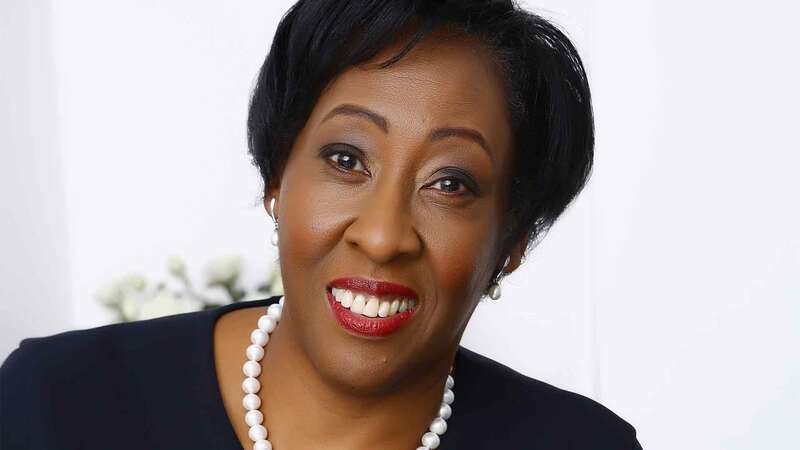You are viewing your 1 free article this month. Login to read more articles.
Publishing must decolonise
The movement of protests, riots and direct action that has sparked across the globe following the death of George Floyd has now entered the offices of creative industries such as publishing, and been swallowed up by the yawn-inducing language of “diversity and inclusion” that is all too familiar to those of us working within the industry.
While calls for reflection are being made, “anti-racist” reading lists are being circulated and the mantra of “we will do better” rolls of the tongue of our White publishing friends, it is unclear why anyone should expect meaningful change from an industry that has already spent decades bemoaning the diversity problem. It is difficult to view these statements of support as anything but performative zeitgeist from an industry keen to present itself as well-meaning and socially conscious without divesting from its imperial roots.
What does “inclusion” in this industry, as currently conceived, offer people of colour? The publishing industry does not need to be diversified; it needs to be decolonised.
Of all the creative industries, publishing is the most explicitly imperial. An open letter from the Publisher’s Association in 2018 argued without irony or acknowledgement of its own imperial history that "UK publishing is world-leading and a cornerstone of Britain’s cultural and economic influence." Books have always been an important propaganda tool and the flow of writing and information from West to East has been central to the colonial project.
Little has changed to this day. Multinational publishing companies work in an explicitly colonial framework; they distribute books acquired in the UK wherever they have rights, but rarely would a book published first by a division in South Africa or India, say, be picked up by the UK head office. The few books that do make it over traffic in exploitative tropes, pushing a singular narrative and feeding into a limiting and caricaturish portrayal of people in the global South.
The foundations of the publishing industry are white, male and middle class and a simple look at the demographic of an average mainstream UK white publishing house makes it clear how closely the industry is still tied to these roots, albeit now with more women. A recent survey found that only 13% of respondents identified as BAME, and that a disproportionate number of respondents were from the South East, and had been to fee-paying schools.
This has created an industry that not only caters wholly to that target group but refuses to embrace even the diversity inherent within itself, let alone those it considers external to it. Bookshops judge what books to acquire based on reviews in newspapers, written by similarly white and middle-class reviewers and selected by literary editors who believe that their readers won’t want to read books about Africa because it is too “niche”, as one such editor informed me. As long as the gatekeepers of the industry remain invested in this white supremacist and elitist framing, where only white narratives are mainstream and everything else is ghettoed (with a few miraculous exceptions held up as proof of the publishing industry’s diversity), this will remain the case.
For those books by writers of colour that do make it to publication in mainstream UK publishing, that imagined middle-class white reader is still seen as the target audience. Writers are told that their work is not universal enough, code for “it does not centre whiteness”, which often means narratives about black and brown characters angsting over their identity. Similarly, anthologies abound – about immigrants, Black men, Muslim women – all unwittingly explaining their otherness to an unnamed white audience. These anthologies also prove that there is an abundance of talented writers from the margins, and yet the only way for many of these writers to be published is as part of a collection with 20 other writers, writing about experience of racism or other “isms.” When writers of colour are championed by the media, they are invariably published by large multinationals or medium-sized publishing houses who are always on the first tiers for reviewing, again as revealed by a book editor at a major newspaper.
While the increased visibility of writers of colour feel like a sign of progress in a slow-moving industry, it is important to note that diversity is not the same as decolonisation, as decolonised writing does not centre whiteness, nor does it tries to make itself eligible to an imaginary white reader. In the words of Toni Morrison, ‘When I write, I don't translate for white readers.... If I'm specific, and I don't over explain, then anyone can overhear me.’
Given these deep-seated issues within the publishing industry, it was disappointing to see the conversation coalesce around the hashtag #PublishingPaidMe, and a focus on comparing author advances. Racial disparities in advances is clearly an issue, but it obscures the larger conversation needed about the system of advances, and the economic structure of the industry as a whole. Publishing follows a venture capital model (without the exponential return), with publishers investing (gambling might be closer to the reality) in a range of books, knowing most will fail to break even or earn out their advance, and hoping for a hit that will bankroll the rest. The drive to find the next big hit has led to an arms race in advances, disproportionately benefiting white writers, and occasionally writers of colour, as we have seen, while simultaneously depressing wages for those working in the industry.
This issue of salary is one of the largest barriers for entry for people of colour in this industry, particularly those from working class backgrounds. There is no value in encouraging people of colour to join an industry that they cannot afford to remain in, and this is why most diversity in the industry is limited to entry-level positions, and many rarely stay long enough to make the dent that is needed. Routes for progression in this industry are slow and arbitrary, with few people moving out of top positions. Most rely on family wealth, and better-paid partners to withstand the low salaries in publishing; but for people of colour, it is usually the reverse. When those who have grown up in lower income households begin earning, their income is partially reinvested back into their families. For children of immigrants, this often means sending money to family abroad as well. Under these circumstances, it is no wonder that professions such as lawyer and doctor are so highly prized in these communities over careers in the arts.
Working within the publishing industry as a person of colour is also a psychologically damaging experience, especially for my colleagues who work in all white publishing houses; the BAME in Publishing networking group I am a part of is exhausting because it functions more as a counselling session, where people air the many micro-and macro- aggressions that they face within the industry on a daily basis.
The publishing industry’s continuing lack of diversity is not an aberration or the product of a broken system; it is the logical outcome when one factors in the principles that this industry was built on, and its purpose as a tool for cultural imperialism. This is why no amount of diversity officers, roundtables and initiatives have been able to bring about transformative change to the industry. For older publishers and agents like Margaret Busby, Verna Wilkins, Ellah Wakatama, Elise Dillsworth etc., the latest talk of diversity and inclusivity must feel exasperatingly like déjà vu.
With Black writing making history in the UK by topping the bestsellers lists, it is imperative that we do not let these symbolic, and transient victories obscure the reality of the industry. Representation is only the beginning when the foundations of the system itself need to be overhauled. Reforms that do not ultimately work towards divestment instead entrench and give legitimacy to existing systems. When we call for representation, what does this achieve if the people who represent us feed into and legitimise the system themselves, as we are seeing play out with the Conservative Party’s cynical deployment of BAME representatives? It is counterintuitive to expect these representatives to be able to dismantle from within, when to work within the system means to work towards its imperialist goals at the price of one’s individual mental health.
So, if diversity initiatives are too surface level, and true inclusion impossible without an ideological and economic overhaul of the industry, where does this leave us? Instead of relying on an industry still rooted in a white supremacist infrastructure to make the changes, the onus is on people of colour to form their own infrastructure, set their own table, where they can own the means of production around the telling of their own stories and make a commercial success of them. We already have examples, such as Cassava Republic Press, Jacaranda, Hope Road, OwnIt, Peepal Press, all mostly women-owned and they need our support, energy, and resources to ensure they are commercially successful and sustainable. The existence of these companies is a reminder that the change that needs to happen in this industry is their commercial success and the decolonisation of the entire industry, and not diversity or inclusivity.
Decolonising the industry requires more black and brown-owned publishing houses, working in dialogue with publishing houses in the global South and across the Black diaspora. It requires us to move away from a focus on bookshops as the focus of our Sales strategies and go meet “our” audience where they live. Bookshops in the UK are not a welcoming space for people of colour and the working class and cannot be the key to reaching that audience, unless the bookshops are also prepared to decolonise their taste and space. Rather, we need to look for new ways to sell directly to the community, as has been done with success through small traders like Book Love, who go into schools and nurseries as well as local markets to find that elusive but eagerly waiting audience that all of us in the industry have ignored. We also need to move away from mainstream media as a gatekeeper, finding alternative methods to create a buzz around our books.
Diversity and inclusion have not worked. It is time to divest and decolonise.
Layla Mohamed is an editorial assistant at Cassava Republic Press. She has been a panellist at Africa Writes, and edited A Small Silence by Jumoke Verissimo, which was shortlisted for the RSL Ondaatje Prize 2020.














